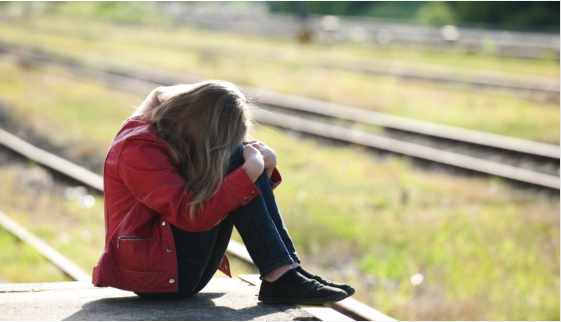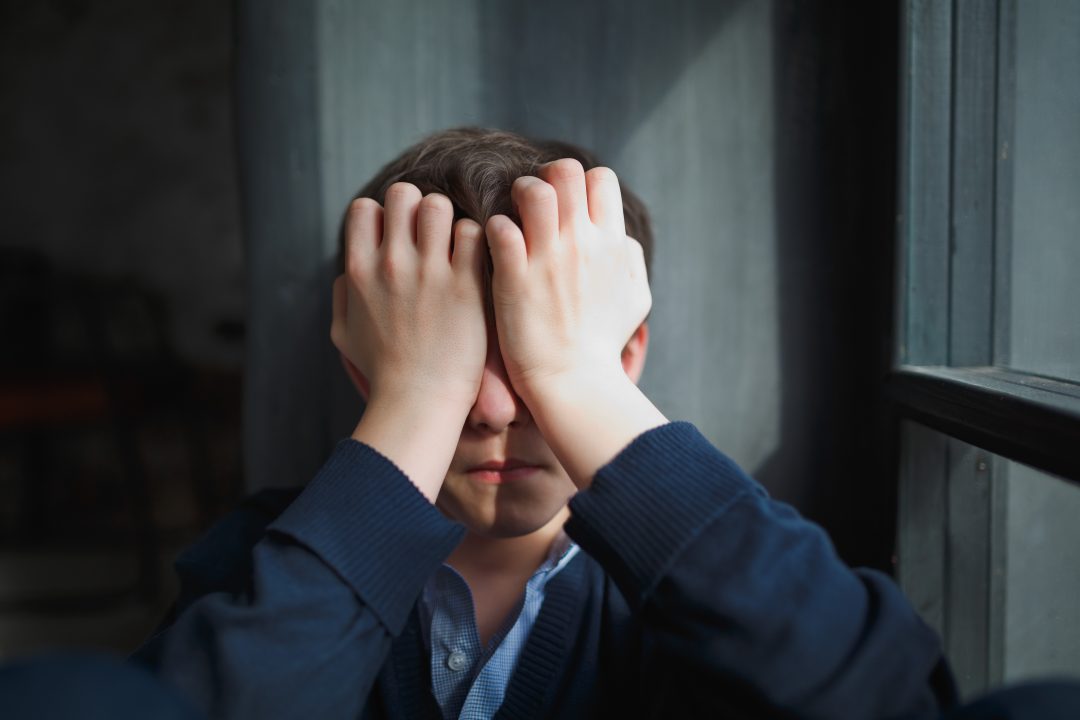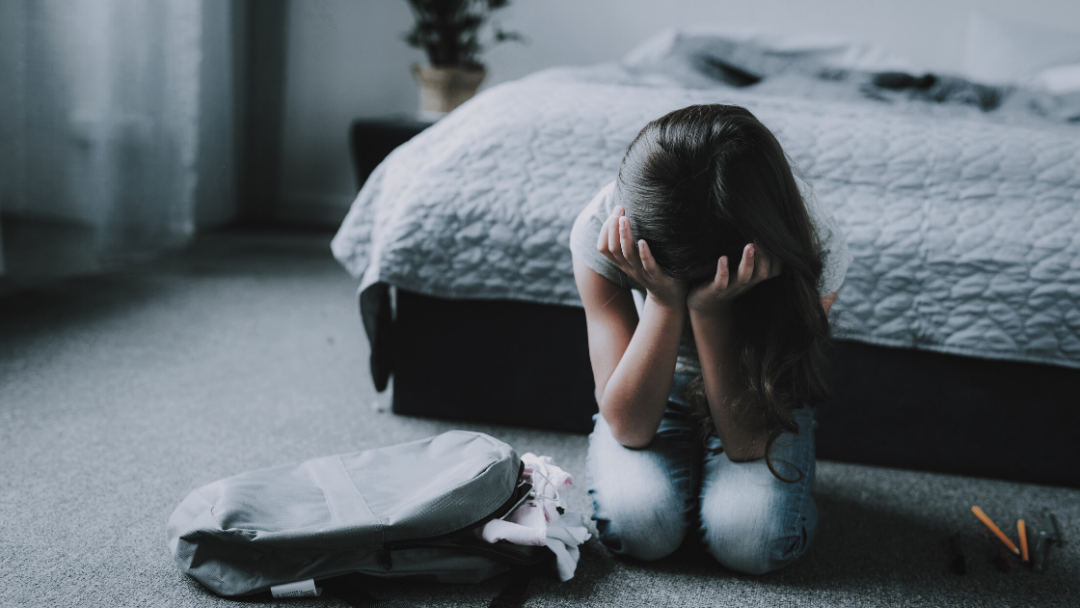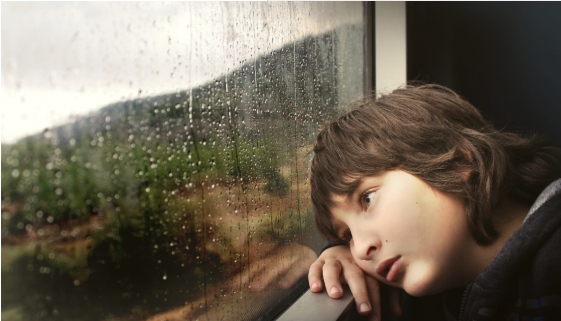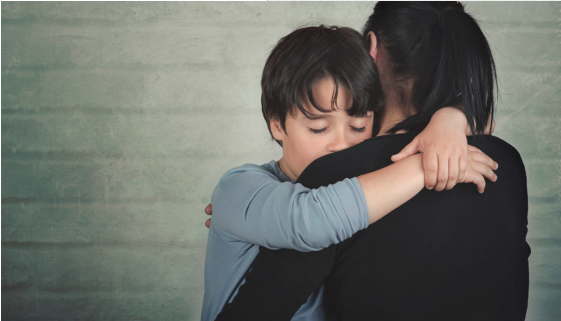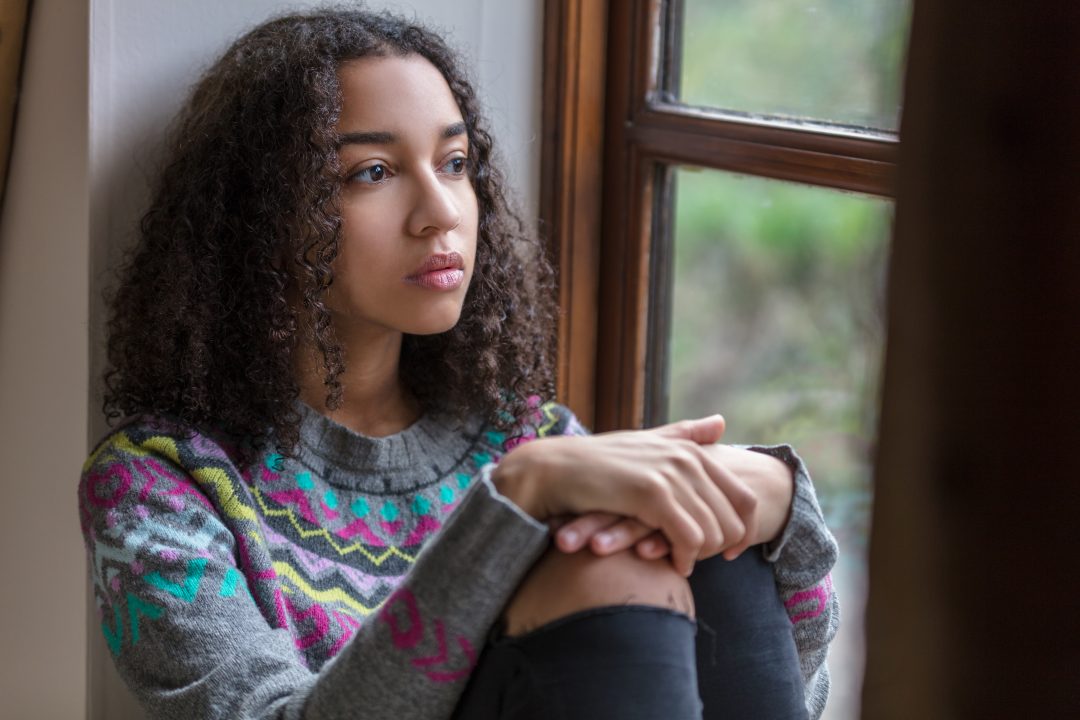Helping kids cope with death, grief and loss series, Part 2 of 2
Categories: Mental Health
In our last blog, we wrote about how to help kids cope with death, grief and loss. This week is a continuation of that theme, looking more specifically at the topic of suicide. We hope that suicide never enters your child’s world, even remotely, but we can’t stick our heads in the sand about it and pray it stays away. The fact is, suicide is likely to impact the lives of all our children, whether they experience it in reality or witness a visceral portrayal on a screen. In any case, we’d rather arm you with this information now than wait until it’s happened and you and your community are in shock. The second part of this blog will be about what to do if you’re worried about your child and the possibility of their suicide. It’s unthinkable, but it’s never impossible and we need to talk about it if we want to try and prevent it from happening.
To reflect the updated recommendations on language use from the mental healthcare community, we won’t be using the term ‘committed suicide’ when referring to a person who takes their own life. The reason for this is because the use of the word ‘committed’ implies that suicide is a sin or a crime, and it’s not. Words have power, and we need to be careful when talking about suicide to children that we don’t glamourise it, or present it as a reasonable option for solving problems. Research shows that media portrayals that sensationalise sucide can actually increase the rates of suicidal behaviour among viewers. This doesn’t mean we shouldn’t speak about it, but it does mean we need to be factual, calm and measured when doing so.
When your child is impacted by the suicide of someone, many of the same guidelines on helping them cope with any death or loss experience apply. To recap, here are the main points from our experts’ guidance in the first part of this series on how you can help your child when death enters their world:
- Help them prepare before it happens to a human
- Try and make sure they hear it from you first
- Choose your time carefully and prepare yourself
- Use the actual words, not euphemisms
- Give age-appropriate information
- Let them react in whatever way they do
- Make sure they know what death means
- Explain what happens next
- Talk to them about what grief feels like and let them express it
- Surround them with love.
However, when it’s a suicide your child is impacted by, there are also some specific things to keep in mind:
Talk to your child about suicide as soon as they’re aware of it
As with any death, it’s preferable if you can speak to your child about the topic of suicide before it comes into their personal orbit. Essentially, this means that if you believe they’re aware of suicide as a concept, it’s a good idea to talk to them about it. This can help prevent them learning things that frighten them, are incorrect or only part of the story, says ParentTV expert Claire Orange. ‘Mental health has a greater platform now than it used to, so children will be exposed to the topic of suicide earlier. For some families, it might be a reality for a child when they’re very young that someone in their family has taken their life. For others, it might not come up until their teens. As parents, what we want to do is get out in front of that conversation. If they learn about a suicide from others in the playground, it might not be the truth and can be quite misunderstood and scary.’ ParentTV expert Maggie Dent agrees, saying, ‘Whatever age your child is, they’re going to need to know, and you need to be the one to tell them. Suicide is such a tragic and traumatic event that it will defintiely be talked about, and kids will overhear things. You can be there to filter that information.’
Explain what suicide means
As we mentioned in Part One of this series, it’s important to fact-check your child’s understanding of death and what it actually means before you get any further. They need to be clear on the fact that death is final, it means someone is not coming back, and suicide means that person has chosen to end their own life. It can be tricky to find the right words to tell your child about a suicide when you don’t want to give them too much information. Maggie Dent has some suggestions for how to frame the discussion, saying, ‘When we’re talking to our children about suicide, we can start by talking about people who have died because of an illness or injury, which is a physical hurt. Then, we explain that people can also die of emotional hurt, which happens when they feel so awful inside their minds and hearts that they can’t work out a way to make themselves feel better. Sometimes we say that’s a mental illness or sometimes it’s just big, ugly feelings. If a person feels like that and they don’t reach out and tell someone and ask for support, sometimes the only way they can think of to feel better is to end their life.’
Steer clear of specifics
‘We really don’t need to give kids the specifics of suicide,’ Maggie continues. ‘We can just say that the person has chosen to leave our world because it felt too hard and too difficult for them. For some, we can say that they took medicine that made their heart stop, or they made a choice that made their life end.’ Sharing specific details about how a person ended their life might be perceived as insensitive to their family and disrespectful to the person who has died, and it can also be unnecessarily traumatic for your child to hear. While we do want to tell them the truth, this doesn’t mean telling them everything. A full colour illustration of what happened will be a lot harder to shake from their minds than a brief outline.
Allow their brains time to process it
‘If a sudden awful thing happens, the body and mind of the child or teen goes into a state of shock,’ says Maggie Dent. ‘Sometimes it’s just too big for them to respond to and process. They might be edgy, restless, irrational, angry, tearful. Their body might respond as though it’s managing a threat to their own survival, because their amygdala reads it this way. It’s going to be really hard for them to concentrate for a few days, and they might have sleep and eating difficulties.’ Another possibility is that when you tell your child about a suicide, they might not want to talk about it at all, says ParentTV expert Jason Gibson. ‘When trauma strikes and your child is affected, it’s good to walk the middle line between not asking too many questions but making sure they know you care and are always available to talk to. Sometimes a face to face conversation can be intimidating, so you could try going for a walk or drive and chatting with them about it then.’
But, forcing the issue could do even more damage, says ParentTV expert Dr Justin Coulson. ‘Trauma conversations are not always in the best interest of the traumatised person. If we try to get them to open up too soon, their reliving of the event can just embed the trauma deeper into their psyche. Tell them that when they’re ready to talk, you’ll be there. Give them some space, let them process. If they’re ready to talk immediately, that’s fine, too.’ It’s also good to avoid telling them how to feel or how to heal, Jason continues. ‘As a parent, you know the pain of loss and want to share that information, but they need to feel heard before they can listen to any wisdom you have.’
Engage their empathy
When we’re talking to children about a person who has taken their own life, we need to make sure that they understand that this news is not gossip or to be used as social currency, and a real person was hurting very badly when they made that choice. Speculating about their reasons isn’t helpful or fair. ‘You’re trying to get them to activate their own moral compass at this point,’ says ParentTV expert, Dr Justin Coulson. ‘We want them to see the humanity and suffering in the person who took their own life. Encourage their empathy by asking what they think that person might have been feeling, even if it’s not someone they knew well.’ We also have to tell children that it’s nobody’s fault when someone takes their life, says Maggie Dent. ‘We need to make sure our children realise there’s nobody else to blame. It’s tragic and sad but assigning blame doesn’t help.’ If your child has the opportunity to participate in planning a funeral that celebrates the person’s life, this can be helpful too, Maggie says. Community can be healing, and being with others who knew the person who died and share the loss can help make grief less isolating.
Here’s what to do if you’re ever worried about your own child
If you’re ever concerned that your child may be considering suicide, it’s important to take decisive action straight away, says Claire Orange. ‘If you suspect your child is on the path to suicide, there are some immediate steps you need to take. There are no do-overs in this situation, so we have to pull out all the stops and take it very seriously from the outset. In all Australian states, you can turn up to the Emergency room at a public hospital with your child and there will be trained staff there who can help you. Getting your child there might be a battle, but it’s a battle worth having and winning. If you need assistance, you can call the ambulance or police.’
While you might hesitate about taking what could be perceived as ‘drastic’ action, or worried that your child will be angry at you for it, it’s an emergency and you still need to do it, Claire confirms. ‘You might worry as a parent that going to hospital will violate the trust of your child at a time when they’re deeply emotionally depleted. You know what? It’s the best step you’ll ever take. Don’t be afraid to do it. If you’re extremely concerned, you don’t need cooperation and compliance from your child to take that action. Parents need to feel empowered to take the action to keep kids safe even if they push back or don’t agree with it. Go at it hard.’ You could consider searching for alternative support services nearby, Claire says. ‘Go online and find out what services there are in your immediate area. You can also call SANE, Beyond Blue, Lifeline or Kids Helpline.’

Bringing it up before it’s urgent
When you’re having a conversation with your child about suicide and your concerns, try and approach it with curiosity rather than being confrontational, says Amanda from Kids Helpline. ‘If you find yourself in a conversation about suicide, ask questions rather than talking at them. It’s absolutely okay to ask the question directly – ‘Are you feeling suicidal?’ This won’t make things worse, and won’t make them consider it if they weren’t.’ It’s also important to understand that suicidal thoughts are not necessarily rational, Amanda continues. ‘Don’t try to reason or rationalise or trivialise what they’re going through. Acknowledge their feelings and make a safety plan with them. Talk about how they will let you know if they feel unsafe, and what you will do. This way you both know what to expect if it happens.’
It’s also important to note that suicidal thoughts are quite common and not always a cause for concern, Amanda says. ‘Thoughts of suicide aren’t actually listed in the DSM (Diagnostic and Statistics Manual) as a symptom of a mental illness or disorder for this reason. There’s a difference between young people who have thoughts of suicide and young people who are planning to act on their thoughts about suicide. It’s important to make the distinction, if possible.’
Signs a child may be considering suicide
Signs that your child may be going beyond thoughts and seriously considering suicide can be both overt and covert, says Claire Orange. ‘With a younger child, they might say things explosively like, ‘I want to die, I don’t want to do this, I don’t want to be here anymore.’ This needs to be taken seriously. When they’re in this stage of life, their impulsive brain can take over from their rational thinking and you need to protect them from this. In an older child, you might notice that they’re spending more time on screen, obsessively checking their phone. You might see mood changes like higher levels of irritability or displays of big, hysterical emotion might also be displayed. They might isolate themselves or withdraw from their regular activities. Ask yourself, how much time are they spending alone in their room? Are there changes in their sleeping or eating habits? Has a friend or acquaintance taken their own life recently?’
Some kids might not give any indication that they’re contemplating suicide at all, says Amanda. ‘I want to emphasise that we know young people will hide feelings of feeling depressed, anxious and suicidal. In a lot of cases, there may have been no warning signs at all. It’s common for young people to try and keep it a secret because they’re trying to protect their family. They might also feel like they can’t get help or don’t know how to get help.’ For this reason, it’s good to try and stay connected with your child so you’ll be aware if they’re acting differently, says Amanda. ‘The most important thing you can do as a parent is show your child that they’re valued and cared for. Make sure that they know they’re loved and their wellbeing is your top priority.’
We hope this has been helpful. Remember, if your child is in immediate danger, take them to hospital or call 000. If you need further support, please reach out for assistance from these support services:
Lifeline: Call 13 11 44 or chat online
Beyond Blue: Call 1300 22 3646 or chat online


